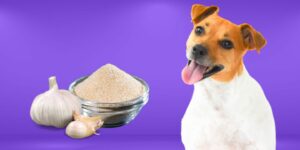The short answer is yes, dogs can eat dairy products, but they are not recommended. It's important to remember that not all dairy products are safe and beneficial for dogs. In this comprehensive article, we'll explore the safety and benefits of feeding dairy to dogs, including potential risks and tips for incorporating dairy into their diets.
Can Dogs Digest Dairy Products?
Lactose Intolerance in Dogs
Lactose intolerance is the inability to digest lactose, a sugar found in milk and other dairy products. Dogs can be lactose intolerant, just like humans. To determine if your dog is lactose intolerant, look for symptoms like diarrhea, gas, and bloating after consuming dairy products.
Lactase Enzyme and Dogs
Lactase is an enzyme that helps in breaking down lactose. This enzyme plays a crucial role in helping dogs digest lactose. Puppies generally have higher levels of lactase than adult dogs, which is why they can tolerate their mother's milk. As dogs age, their lactase levels may decrease, making it harder for them to digest dairy products.
Safe Dairy Products for Dogs
Plain Yogurt
Plain, unsweetened yogurt can be a healthy option for dogs. It contains probiotics that help with digestion and boost the immune system. To serve yogurt to your dog, try adding a small spoonful of it to their regular food.
Cottage Cheese
Cottage cheese is another safe dairy product for dogs. It's high in protein, calcium, and vitamins. You can serve cottage cheese to your dog by mixing a small portion into their food.
Mozzarella Cheese
Mozzarella cheese can also be safe for dogs when served in moderation. This cheese is high in protein and calcium, and can be a tasty treat for your dog. Feed your dog small pieces of mozzarella as a treat or an occasional addition to their meals.
Unsafe Dairy Products for Dogs
Milk
Feeding milk to dogs can cause digestive issues, particularly in lactose intolerant dogs. It's better to opt for lactose-free alternatives, like goat's milk or specially formulated dog milk, for dogs who enjoy the taste.
Ice Cream
Ice cream is unsafe for dogs due to its high sugar content and presence of artificial sweeteners, like xylitol, which can be toxic to dogs. Instead of ice cream, try offering your dog frozen treats made with dog-safe ingredients like pureed fruit or peanut butter.
Butter and Cream
Butter and cream are high in fat and can cause weight gain, pancreatitis, and other health issues in dogs. Avoid feeding your dog these rich dairy products and choose healthier alternatives, like plain yogurt or low-fat cheese.
How to Introduce Dairy Products to Your Dog's Diet
Gradual Introduction
When introducing dairy to your dog's diet, start with small amounts and increase gradually. Monitor your dog's reaction to ensure they don't experience any adverse effects, like diarrhea or gas.
Portion Control
Keep servings of dairy products small and balanced with the other components of your dog's diet to avoid overfeeding and potential health issues.
Allergies and Sensitivities
Watch for signs of dairy allergies or sensitivities, such as skin irritations, itching, or digestive issues. If you suspect your dog has an allergy, consult your veterinarian and remove dairy products from their diet.
Conclusion
In conclusion, dogs can eat dairy in moderation as part of a balanced diet. However, it's important to choose the right types of dairy products and monitor your dog's reaction to ensure they don't experience any digestive issues. By following these guidelines, you can safely include dairy in your dog's diet and provide them with some important nutrients.


























